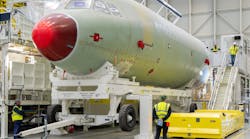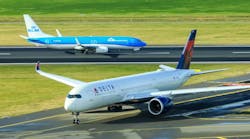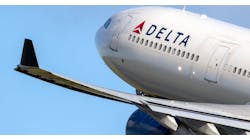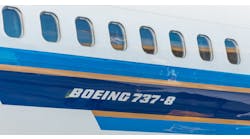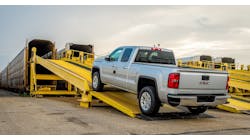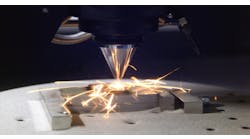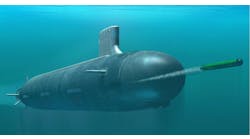Airbus S.A. forecasts that the North American commercial aircraft services market will grow by 45% to $45 billion through 2042 due to annual increased in air-traffic volume, the growth of the total fleet serving the region, and requirements for more digitally-enabled and connected aircraft. The Airbus Global Services Forecast is a 20-year outlook study of commercial aviation’s requirements for asset maintenance, personnel training, fleet operation, and “passenger experience enhancement,” for passenger aircraft and freighter aircraft.
The aircraft builder noted that North America was the first region to demonstrate recover from the Covid-19 pandemic, and that it delivered one the strongest rebounds since 2020. Airbus predicts that passenger traffic growth in North America will expand at a compound annual growth rate (CAGR) of 2.1% through 2042.
“Driven by the rise in annual air traffic, fleet growth, and the requirement for more digitally-enabled and connected aircraft, the growth in demand for services will be reflected in solutions implemented across all phases of the aircraft, from delivery to end-of-life , including fleet maintenance, aircraft modernization and training,” according to Airbus.
On that basis, Airbus forecasts that the North American aircraft maintenance market will expand by more than 2.0% annually over the next two decades, from $25.9 billion in 2023 to $37.8 billion in 2042.
Passenger-jet-to-freighter conversion and used serviceable material will be worth an estimated cumulative market value of $17 billion over the next 20 years, helping to address the matter of retiring aircraft “in a sustainable way.”
Aircraft enhancement and modernization will achieve an average annual growth rate above 4.1% between 2023 and 2042, from $1.9 billion to $4.1 billion, involving cabin and system upgrades as part of fleet and air traffic infrastructure modernization.
Aircraft connectivity will be another driver of growth in commercial aircraft services, according to Airbus. Whereas currently close to 60% of the North American fleet is “connected,” by 2042 that total will be 90% as airlines implement technologies for better real-time communication for on-the-ground, in-flight, and maintenance operations, as well as to offer better passenger services.
Finally, Airbus predicts that training and operations activity will rise by a consolidated +0.8% through 2042, from a $2.5-billion market to $3-billion market. Airbus anticipates a need for 366,000 new skilled professionals in North America over the next 20 years, or 104,000 new pilots, 120,000 new technicians, and 142,000 new cabin crew members.
“North America is a region of choice when we think about aftermarket services, with many opportunities for additional efficiency, simplification and sustainable operations. Airbus will continue to play an important role in supporting airlines and the aviation industry at large in responding to those opportunities,” stated Dominik Wacht, vice president-Customer Services for Airbus North America.
